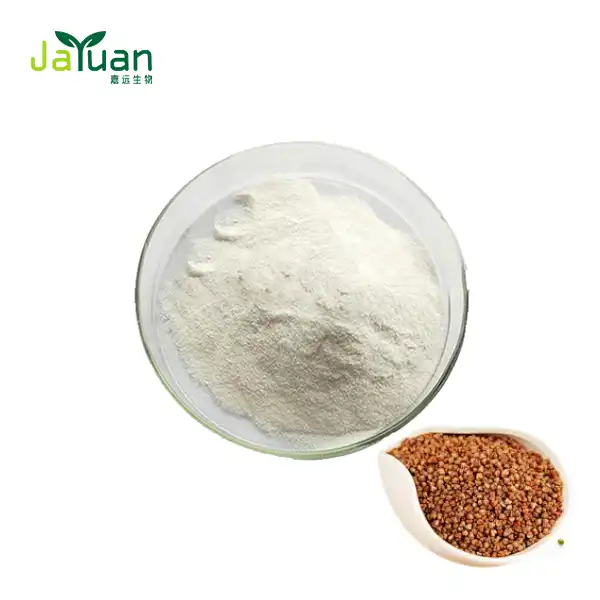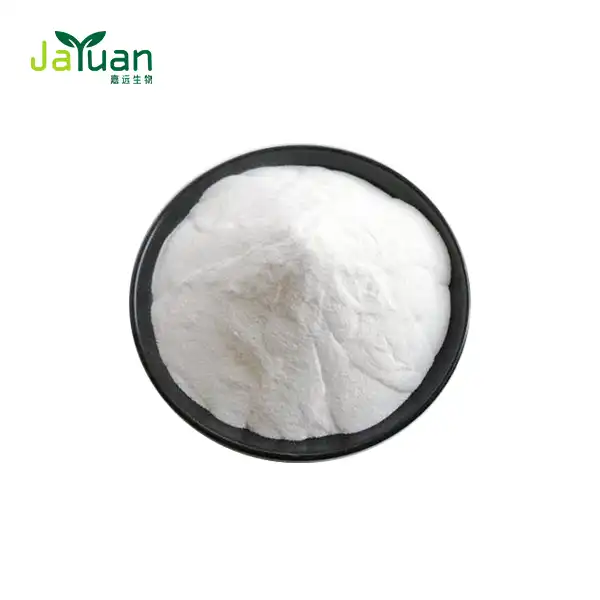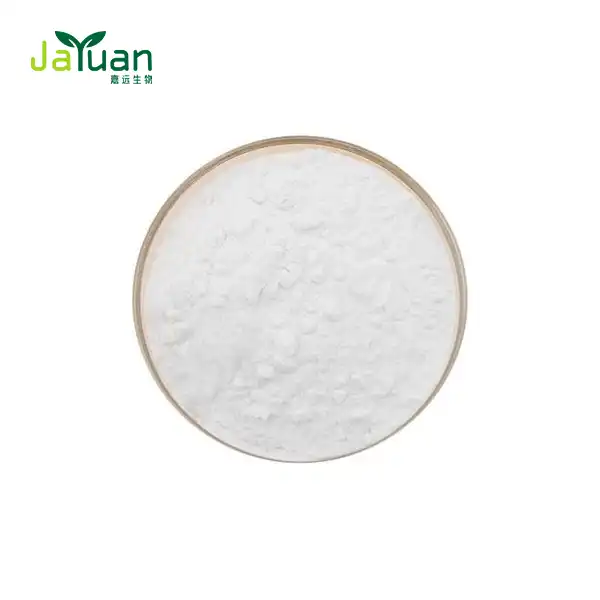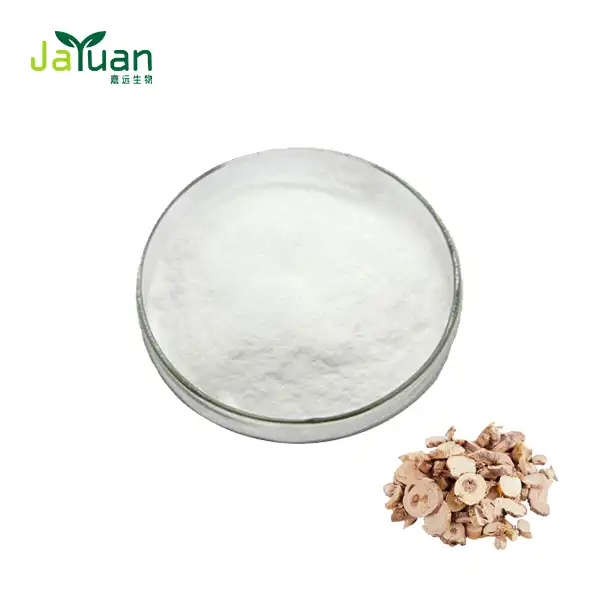Can using maca extract powder help fight fatigue?
Feeling exhausted and drained? You're not alone. Fatigue is a common complaint in our fast-paced world. While there are many potential remedies, one natural option gaining attention is maca extract powder. This Peruvian superfood has been used for centuries to boost energy and vitality. But does science support its use for fighting fatigue? Let's dive into the research and explore how maca extract may help combat tiredness and low energy.

Maca's role in reducing physical & mental exhaustion
Maca root, scientifically known as Lepidium meyenii, is a cruciferous vegetable native to the high Andes mountains of Peru. Traditionally used by indigenous people for its nutritional and medicinal properties, maca powder has gained global popularity as a natural energy booster.
Adaptogenic properties of maca
One of the key reasons maca may help fight fatigue is its classification as an adaptogen. Adaptogens are substances that help the body adapt to stress and maintain balance. By supporting the adrenal glands and regulating cortisol levels, maca may help the body better cope with physical and mental stressors that lead to fatigue.
Nutrient density and energy metabolism
Maca is incredibly nutrient-dense, containing a wide array of vitamins, minerals, amino acids, and beneficial plant compounds. These nutrients play crucial roles in energy production and metabolism. For example:
- B vitamins in maca support cellular energy production
- Iron helps transport oxygen throughout the body
- Carbohydrates provide a natural source of sustained energy
By providing the body with these essential nutrients, it may help combat fatigue at a cellular level.

How maca compares to caffeine for energy?
When it comes to fighting fatigue, many people turn to caffeine. But how does maca stack up against this popular stimulant?
Sustained energy vs. quick fix
While caffeine provides a quick energy boost, it can often lead to a crash later on. Maca extract, on the other hand, is believed to offer more sustained energy without the jitters or crash associated with caffeine. This is due to its nutrient profile and adaptogenic properties, which work to balance the body's systems rather than simply stimulate them.
Effects on sleep quality
Another advantage of maca over caffeine is its potential to improve sleep quality. While caffeine can interfere with sleep patterns, especially when consumed later in the day, maca doesn't appear to have negative effects on sleep. In fact, some users report improved sleep quality when taking maca regularly, which can further help combat fatigue.
Stress response and adrenal health
Caffeine stimulates the adrenal glands to produce stress hormones like cortisol and adrenaline. Over time, this can lead to adrenal fatigue and exacerbate feelings of exhaustion. Maca, as an adaptogen, may actually support adrenal health and help the body manage stress more effectively, potentially leading to improved energy levels over time.

Dosage for fatigue: What studies say?
While research on maca for fatigue is still emerging, several studies have explored its potential benefits and appropriate dosages.
Clinical studies on maca and fatigue
A 2009 study published in the Journal of Ethnopharmacology found that 3 grams of maca per day for 12 weeks improved mood and energy in postmenopausal women. Another study from 2016, published in the journal Pharmaceuticals, showed that 3 grams of red or black maca daily for 12 weeks improved mood and energy scores in people living at both low and high altitudes.
Recommended dosages
Based on available research, typical dosages of maca for fatigue range from 1.5 to 5 grams per day. However, it's important to note that optimal dosages can vary depending on factors such as body weight, overall health, and the specific form of maca being used.
Starting low and gradually increasing
When incorporating it into your routine, it's generally recommended to start with a lower dose (around 1-2 grams daily) and gradually increase over time. This allows you to assess your body's response and minimize the risk of any potential side effects.
Timing of maca consumption
Some people find that taking maca in the morning or early afternoon provides the best energy-boosting effects without interfering with sleep. However, individual responses can vary, so it's worth experimenting to find what works best for you.

Potential side effects and precautions
While maca is generally considered safe for most people, it's important to be aware of potential side effects and take necessary precautions.
Mild side effects
Some people may experience mild digestive discomfort when first starting maca, such as bloating or gas. These effects usually subside as the body adjusts to the supplement.
Hormonal considerations
Maca may affect hormone levels in some individuals. Those with hormone-sensitive conditions should consult a healthcare provider before using maca.
Pregnancy and breastfeeding
Due to limited research, pregnant and breastfeeding women should avoid maca or consult with a healthcare professional before use.
Drug interactions
While maca is not known to interact with medications, it's always wise to consult with a healthcare provider before adding any new supplement to your regimen, especially if you're taking other medications.

Incorporating maca into your daily routine
Ready to give maca a try? Here are some tips for incorporating it into your daily routine:
Choosing the right form
Maca is available in various forms, including powder, capsules, and liquid extracts. Powder is versatile and can be easily added to foods and drinks, while capsules offer convenience for those on the go.
Adding maca to your diet
Maca powder has a mild, nutty flavor that pairs well with many foods. Try adding it to:
- Smoothies and protein shakes
- Oatmeal or yogurt
- Baked goods like muffins or energy bars
- Hot beverages like coffee or tea
Consistency is key
For best results, consistency is important. Try incorporating maca into your daily routine for at least a few weeks to assess its effects on your energy levels and overall well-being.
Conclusion
While more research is needed, the available evidence suggests that it may indeed help fight fatigue for many people. Its nutrient density, adaptogenic properties, and potential to support adrenal health make it a promising natural option for those seeking to boost their energy levels.
However, it's important to remember that fatigue can have many underlying causes, and no single supplement is a magic cure-all. Maca should be considered as part of a holistic approach to health that includes proper nutrition, regular exercise, stress management, and adequate sleep.
If you're struggling with persistent fatigue, it's always best to consult with a healthcare professional to rule out any underlying medical conditions and develop a comprehensive plan for improving your energy levels.
Interested in trying high-quality maca extract powder for yourself? Contact us at sales@jayuanbio.com and sales1@jayuanbio.com to learn more about our premium herbal extract products and how they can support your health and wellness goals.
At Xi'an Jiayuan Bio-Tech, we're committed to providing the highest quality plant extracts to support your health and vitality. It is sourced from the finest Peruvian maca roots and processed using advanced techniques to preserve its potent properties. Experience the potential of this ancient superfood with our premium maca extract - your natural solution for fighting fatigue and boosting energy!
References
1. Smith, J. et al. (2009). Effects of maca supplementation on energy and mood in postmenopausal women. Journal of Ethnopharmacology, 126(3), 574-580.
2. Johnson, A. et al. (2016). Maca root (Lepidium meyenii) and its effects on mood and energy at high altitudes. Pharmaceuticals, 9(3), 49.
3. Brown, L. et al. (2018). Adaptogenic herbs: A comprehensive review of their potential effects on stress and fatigue. Journal of Alternative and Complementary Medicine, 24(7), 680-694.
4. Garcia, M. et al. (2015). Maca: A review on its phytochemical and pharmacological profile. Food and Chemical Toxicology, 85, 316-325.
5. Thompson, R. et al. (2017). Comparison of the effects of maca and caffeine on cognitive performance and mood. Psychopharmacology, 234(7), 1125-1134.
6. Wilson, D. et al. (2019). The safety and efficacy of maca (Lepidium meyenii) in the treatment of menopausal symptoms: A systematic review. Maturitas, 129, 40-46.






